Looking for spots to metal detect? This guide outlines actionable locations and where to metal detect, igniting your metal detecting adventures. Steer clear of legal missteps and respect history as you unearth coins, jewelry, and relics.
From sandy beaches to urban landscapes, learn where to start and what treasures await you.
Key Takeaways
- Metal detecting can be rewarding in diverse places such as historic trails, beaches, parks, ghost towns, and urban areas, offering opportunities to find everything from modern valuables to historical relics.
- Acquiring permission to metal detect on private property can open doors to untapped treasures, while adhering to regulations and respecting landowners is crucial for continued access and ethical practice.
- Joining metal detecting clubs and participating in online forums can enhance your treasure hunting experience through communal learning, sharing of tips, and gaining access to high-yield detecting locations.
Unlocking the Secrets of Metal Detecting: Prime Locations to Explore
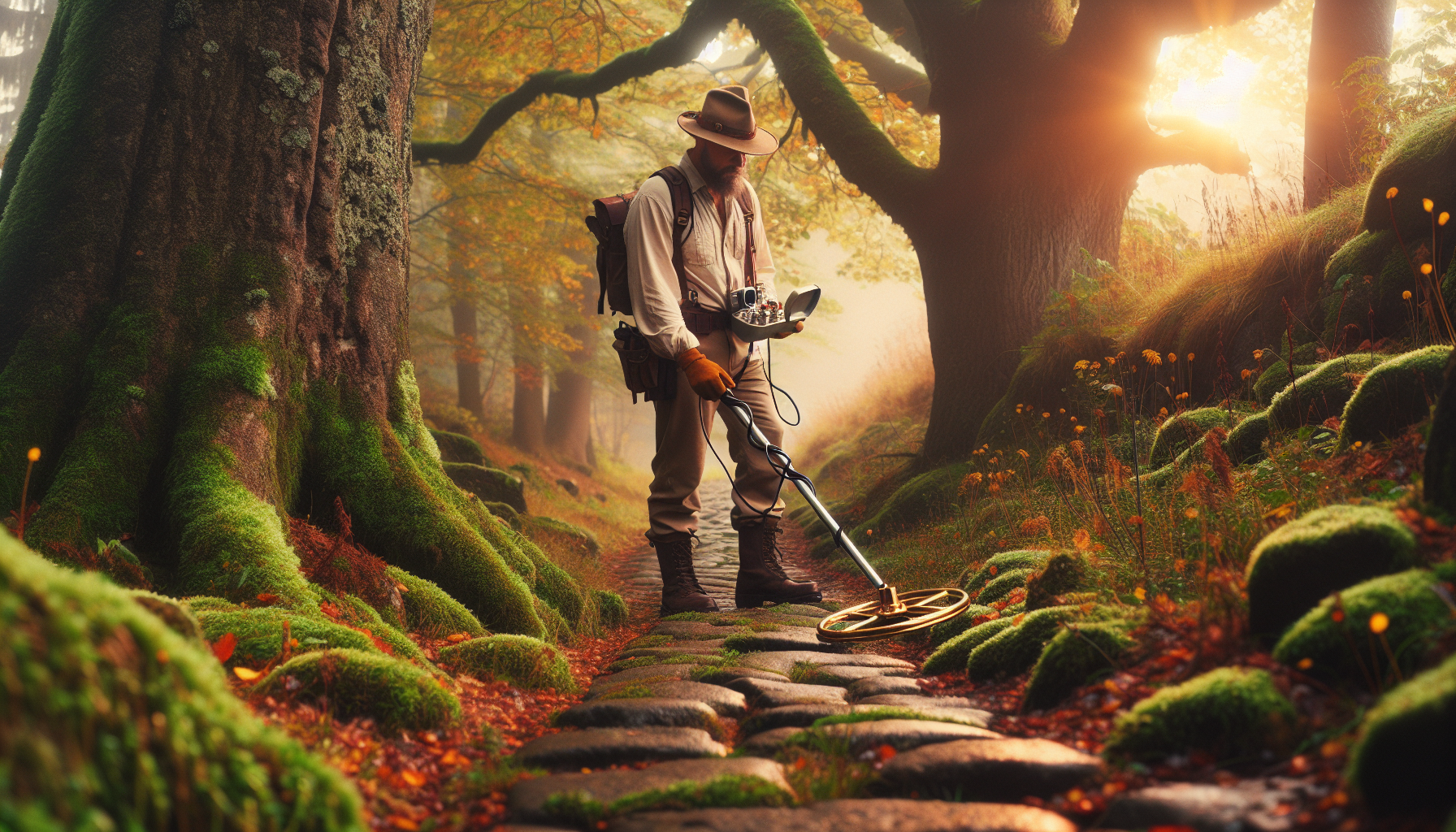
So, where does this adventure begin? Everywhere! The world around us is a treasure trove waiting to be discovered. Every patch of land holds a story, every inch of soil has a secret to tell.
As a metal detectorist, your role is to listen, to explore, and to reveal the lost treasures that lie hidden in plain sight.
Consider the thrill of exploring historic trails, old highways, and town commons with your metal detector. These places are teeming with history, each a potential site for a significant find.
Or imagine the fun of attending fairs, festivals, and carnivals, not just for the entertainment, but to embark on a treasure hunt. These places, brimming with activity and festivity, have been known to yield a mix of modern and older lost valuables.
Even picnic areas, Washington state parks, approved state parks, and national parks, and rural rest stops offer opportunities to discover items lost during outdoor activities.
Your Local Beaches: A Treasure Hunter's Paradise
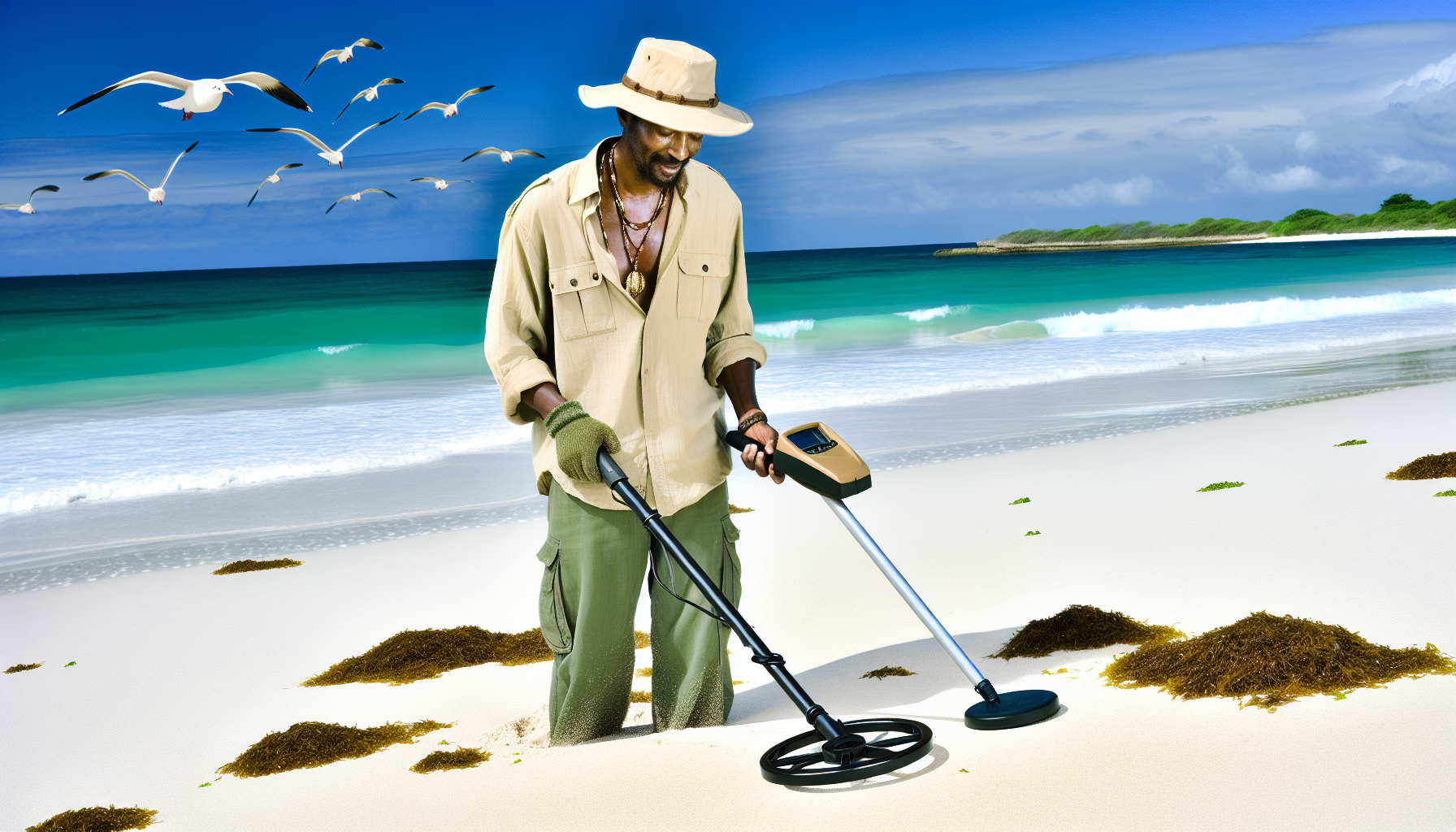
Local saltwater beaches, as well as freshwater ones, should not be left out. These places are excellent locations for metal detecting due to the natural movement of sand and water that brings hidden treasures to light.
And let’s not forget the high traffic of visitors who may lose valuables during their visits.
However, detecting on these terrains calls for unique techniques. The dynamic terrain and the existence of seawater, which can cause interference, require detectors designed to handle these conditions.
Areas around piers and docks, as well as regions frequented by fishermen, are likely hot spots for finding items such as old coins, jewelry, and angling-related metal objects.
Parks and Recreation: Unearthing Lost Coins and More
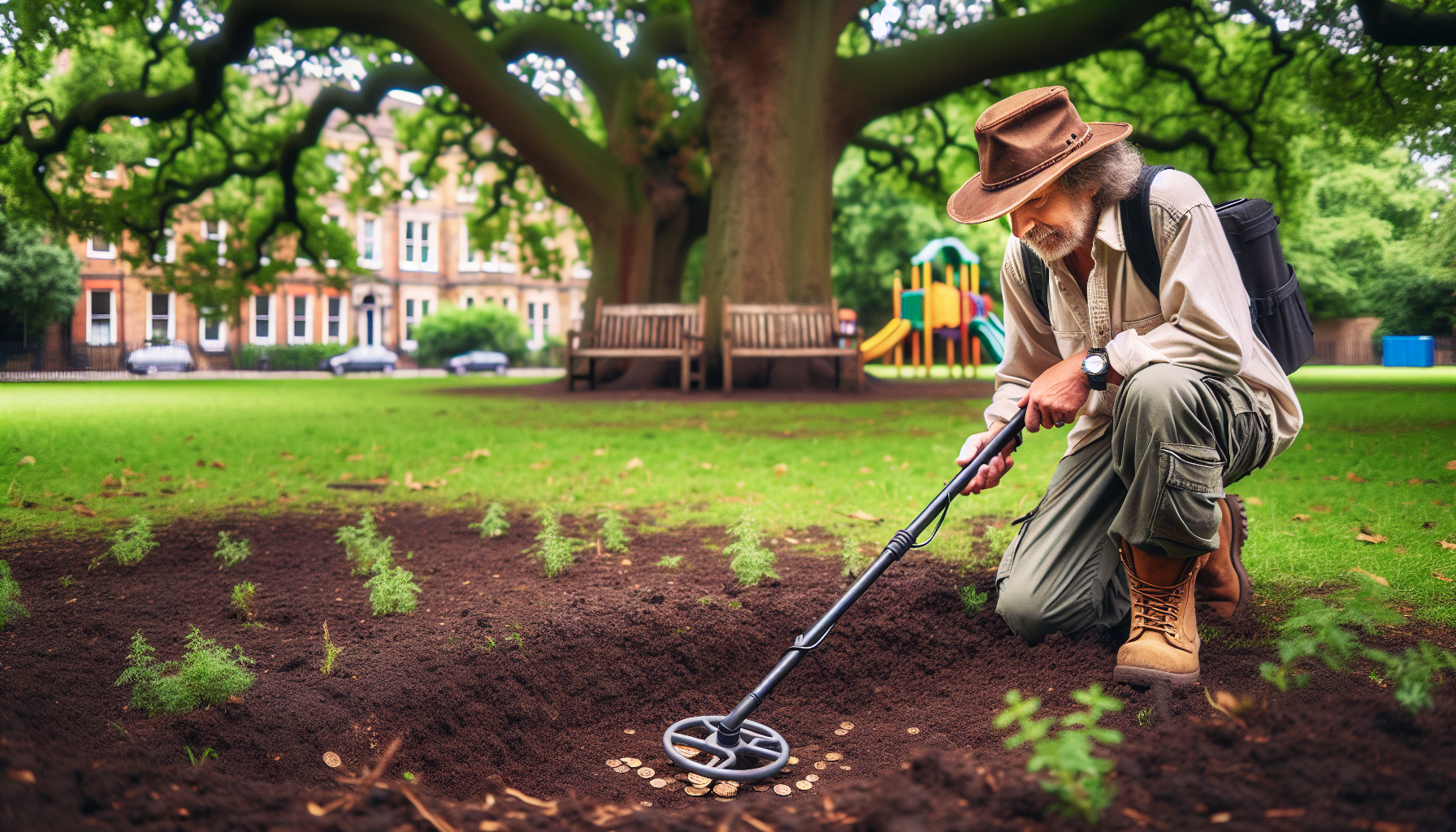
Parks and recreational areas are excellent spots for discovering lost coins, among other things. These places are usually brimming with people engaging in various activities.
As a result, they offer high possibilities of finding dropped coins and small items lost during the hustle and bustle of outdoor fun. Beginners, in particular, are encouraged to start their metal detecting journey in these areas.
Areas around old trees in parks and school grounds are likely places to find old coins and lost jewelry due to historical public use and daily activities.
Campsites, picnic areas within parks, and off-season campgrounds are also lucrative locations for unearthing items such as gold coins, keys, and other valuables.
Bear in mind, ensuring you have the necessary permissions and adhering to park regulations is vital to enjoy your hobby without infringing on natural resources.
The Lure of Ghost Towns and Abandoned Places
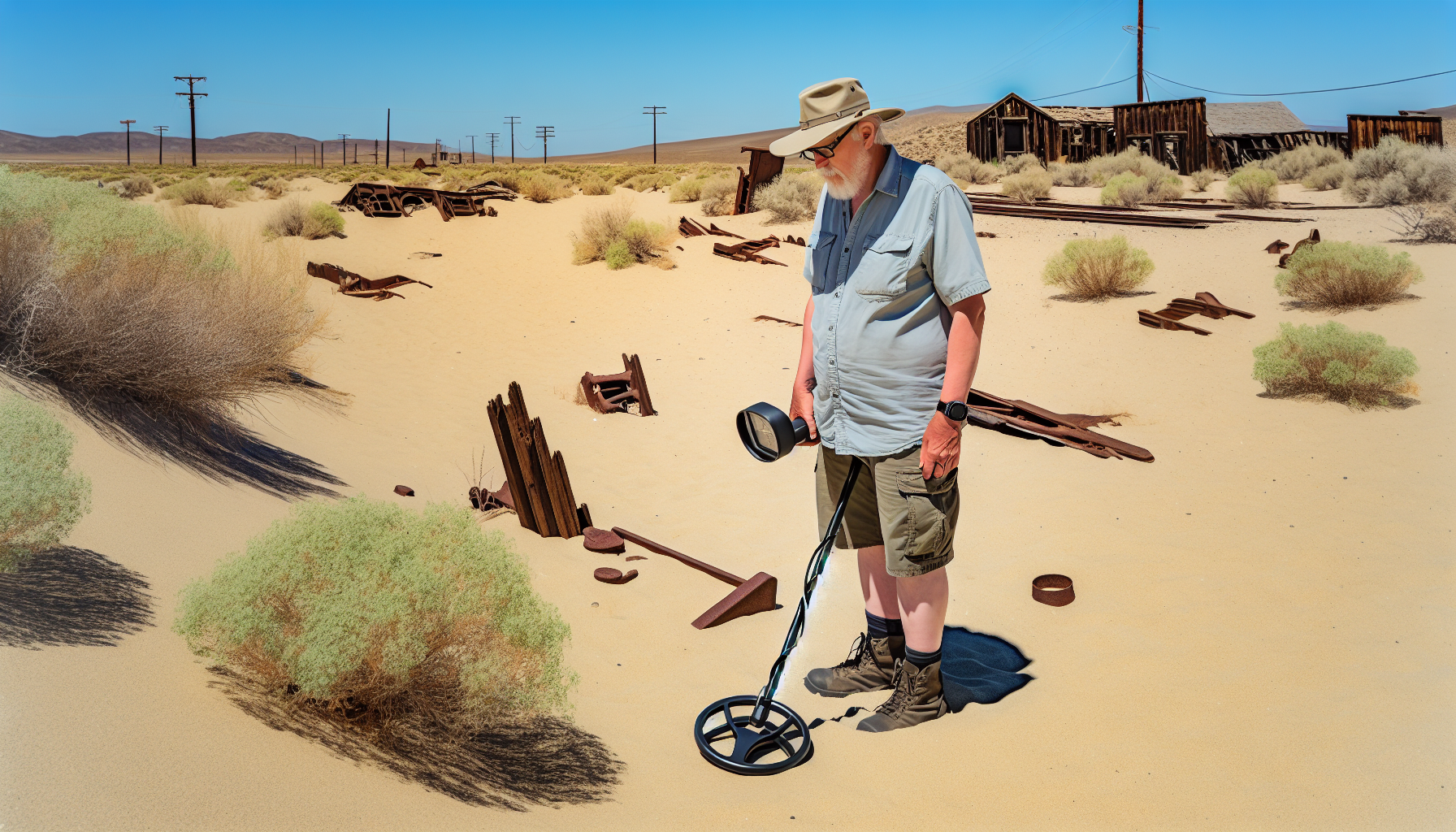
If the thrill of the unknown excites you, ghost towns and other abandoned sites are worth exploring. These neglected locations captivate metal detector enthusiasts as they offer a step back in time and the promise of uncovering historical artifacts.
Ghost towns and abandoned settlements hold the potential for treasure hunting. Here are some tips to get started:
- Secure the required permissions from landowners or authorities to maintain legality and respect for private and historical lands.
- Do some research on the history of the area, including any significant events such as fires or floods, to guide you to specific locations that could be ripe for discovering relics.
- Use a metal detector to search for old coins, lost jewelry, and relics from daily life and past transactions.
Remember to always follow local laws and regulations when treasure hunting. Happy hunting!
Scanning the Past: Historical Sites and Battlefields
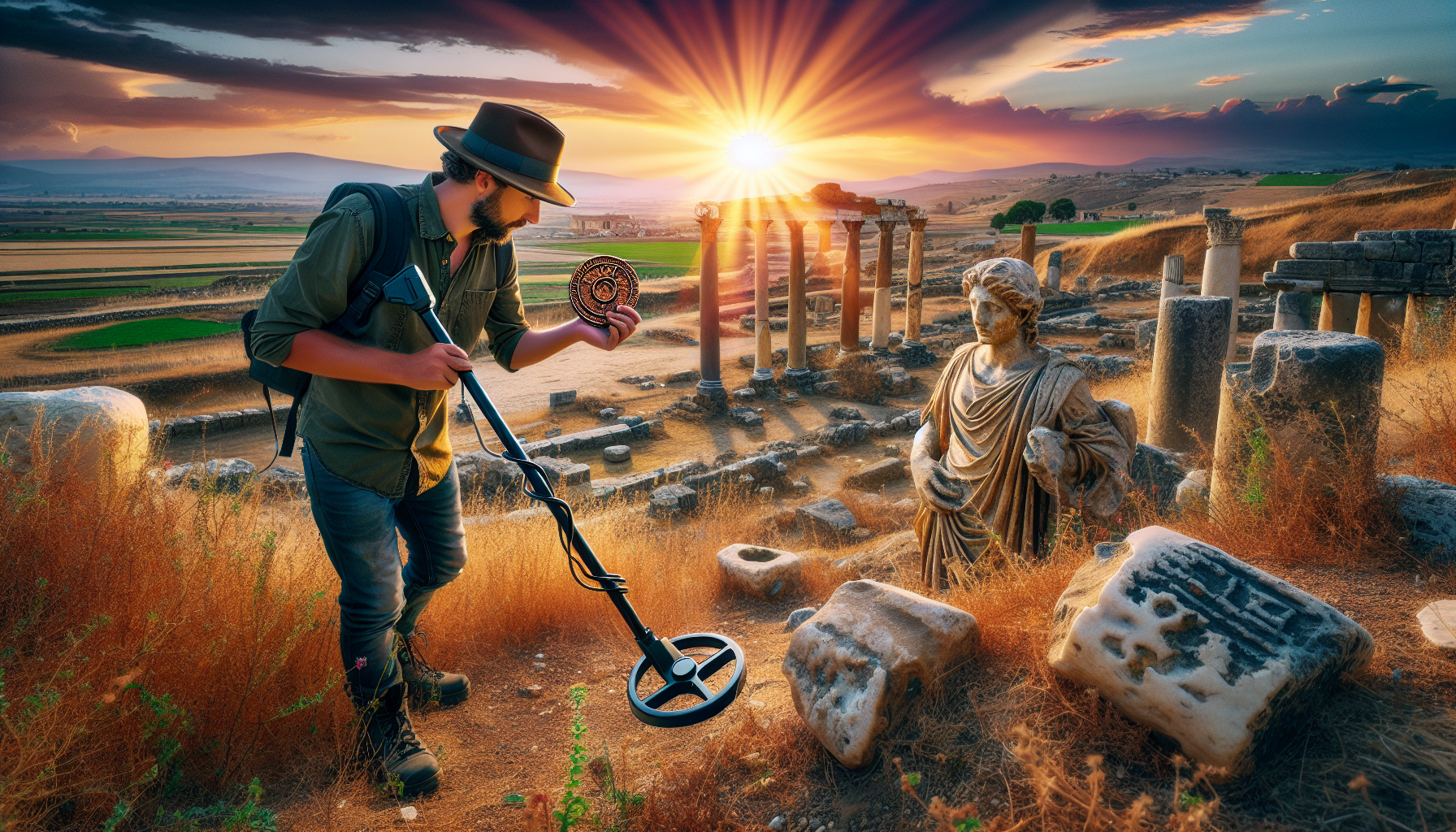
As you delve deeper into metal detecting, your path may lead you to historical sites and battlefields. These places offer the chance to uncover relics such as:
- flat buttons
- bayonets
- canteens
- shell casings
- musket balls
- coins
- uniform pieces
Nevertheless, metal detecting might not always be allowed. Federal laws govern what can and cannot be done on federal property, and metal detecting often requires a permit.
Some areas, such as National Parks, National Monuments, and certain Native American lands, do not allow metal detecting at all.
Besides obtaining permissions, it’s critical to consider the potential risks associated with uncovering artifacts at historical sites, including live munitions.
Certain artifacts, if classified as treasure, must be reported to authorities, with potential rewards for such finds on public lands. Other valuable finds may be sold to museums or collectors.
Remember, being a responsible detectorist is about respecting the sites you explore, protecting history, and adhering to the laws.
Private Land Ventures: With Permission Comes Opportunity
While public lands and historical sites can be a goldmine for treasure hunting, don’t overlook the possibilities that private lands offer.
These lands can hold just as much, if not more, potential for significant finds. However, venturing onto private lands requires permission.
A considerate approach to the landowner, coupled with providing contact details and clear intentions, can enhance your likelihood of permission acquisition.
Negotiating an agreement with the landowner can involve providing credentials, sharing the finds, or discussing possible rewards for significant discoveries. Keep in mind, nurturing a positive relationship with the landowner is crucial.
This includes respecting agreed-upon detecting times and fulfilling any promises concerning the handling of finds.
Sporting Events and Public Gatherings: Where People Tend to Lose Items
Sporting events and public gatherings are another hot spot for finding lost items. Ski resorts, particularly at the lift bases and summits, are prime spots for uncovering lost jewelry frequently dropped during the hustle.
Renaissance fairs and other event grounds are also lucrative metal detecting sites due to the high likelihood of jewelry being lost during vendor interactions and event setup or pack-up activities.
Similarly, sporting fields are recognized as hot spots for metal detecting because attendees often lose coins and jewelry in spectator areas and fields of play.
Still, it’s necessary to minimize the impact of cuts and ensure all holes are filled to preserve the condition of the field.
Boy Scout and Girl Scout camps are also excellent locations for finding coins, jewelry, and potentially valuable scouting memorabilia.
Remember, securing permission from event leaders and adhering to set regulations is crucial when metal detecting at these events.
Urban Treasures: Metal Detecting in Cityscapes
Now, let’s turn our attention to the urban world. Cityscapes, with their bustling activities and ever-evolving landscapes, hold their own set of treasures.
From lost jewelry and coins to historical items, urban environments can be a goldmine for detectorists.
Changes in the landscape brought on by construction and urban development can unearth new detecting hot spots, as previously untouched or inaccessible lands are exposed.
Even less obvious urban spaces such as rest stops, roadside stands, and areas once covered by bodies of water often overlooked by many, hold potential treasures near local landmarks.
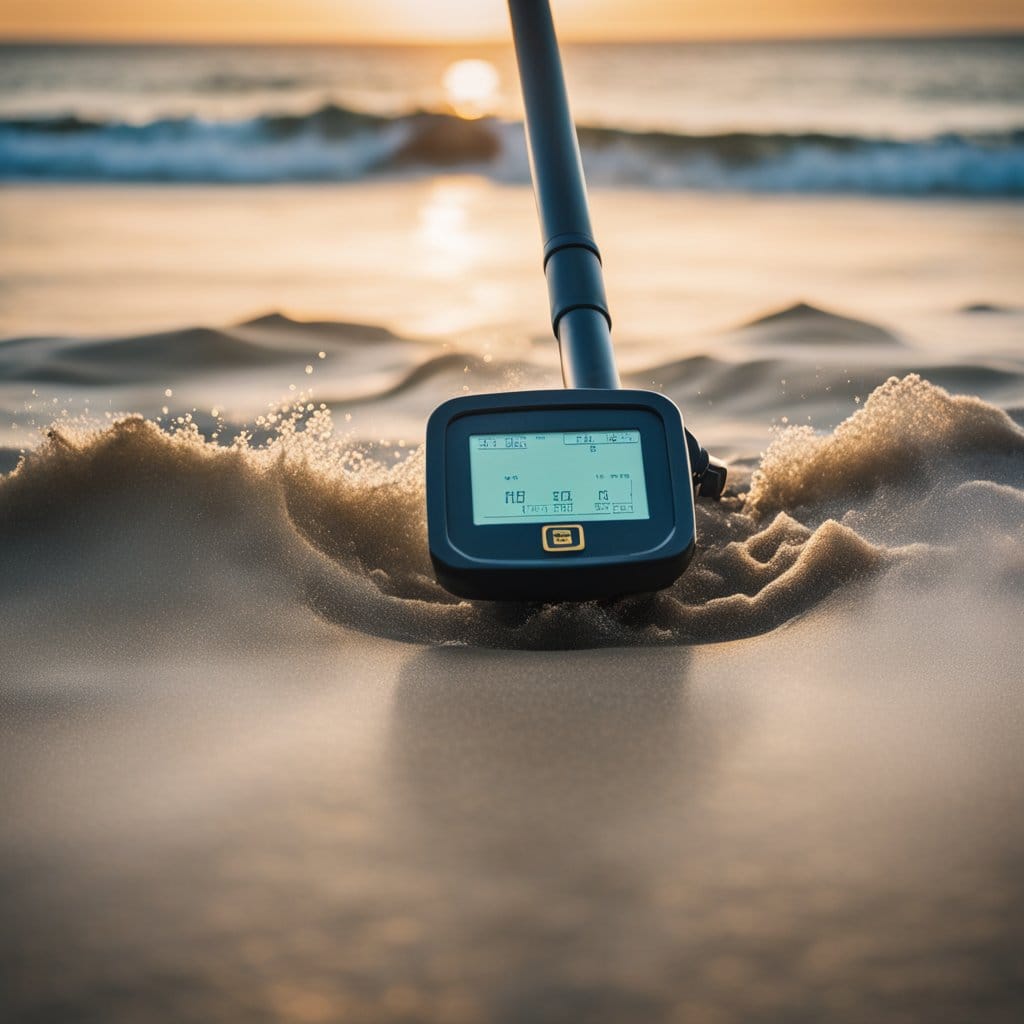
Digging into Local History: Libraries and Archives
For successful urban treasure hunting, an in-depth understanding of local history is crucial. Your local library and archives house a variety of historical research materials that can guide you to potential metal detecting locations.
These resources can provide insights into regional histories, genealogical data, and non-fiction reference materials that can enhance your treasure hunting endeavors.
Historical maps can be particularly valuable, highlighting promising areas for metal detecting such as old highways and fairgrounds. Yet, ensuring the accuracy of these maps and records is essential to avoid possible misinformation.
Online resources such as the Digital Public Library of America offer access to old photographs and documents that can further enhance your research.
Following the Trails of Commerce: Old Markets and Trading Posts
Another fascinating aspect of urban metal detecting involves following the trails of commerce and engaging in coin hunting. Old markets, trading posts, and local businesses are key locations due to the high volume of transactions that historically took place there.
These sites are ripe with coins, tokens, and other remnants of commerce.
Prime spots for metal detecting include places to metal detect such as:
- Abandoned grain mills and swap meets, due to their historical roles as centers of business and exchange
- Historical markets and fairgrounds, where large gatherings of people often resulted in dropped items
- Trading posts located along frequently traveled routes, increasing the likelihood of finding coins and lost trade goods from past commercial activities.
Tools of the Trade: Essential Equipment for Every Treasure Hunter
Now that you have an idea of where to start your treasure hunting journey, it’s time to equip yourself with the tools of the trade. Metal detecting requires essential equipment including:
- Metal detectors
- Digging tools
- Headphones
- Backpack or pouch
- Extra batteries
- A first-aid kit
- Weather-appropriate clothing
Various brands offer enhancements to basic equipment that can significantly improve your detecting capabilities and user experience. Some of these tools include:
- High sensitivity pinpointers
- Variety of search coils
- Ergonomic improvements
- GPS devices
- Mobile mapping apps
- Precision pinpointers
- Powerful headphones
These tools can make your treasure hunting more productive and enjoyable.
Choosing the Right Metal Detector
The heart of your metal detecting equipment is your metal detector. Modern metal detectors come with a variety of detection modes tailored to different treasure hunting needs, enhancing your ability to locate specific types of targets.
Classic detection modes help you focus on particular targets with settings like All-Metal Mode for a broad range of metallic objects, Coin Mode for coins, and Jewelry Mode which is optimized for metals like copper and silver.
Recent advancements in metal detectors, such as Terrain Modes, provide options to fine-tune your equipment’s sensitivity and precision for different soil types and environmental conditions, making it easier to metal detect in various locations.
Bear in mind, effective use of metal detectors enhances the probability of locating valuable items, but patience is key as success might not be immediate.
Digging Responsibly: Selecting and Using the Right Tools
Having the right tools is vital, but using them responsibly is equally significant. Metal detecting is about more than just finding treasures; it’s about respecting property lines and rights and minimizing the environmental impact.
Tools such as land ownership apps, county assessor websites, and local government GIS portals can help you delineate private property boundaries. Using these resources and respecting property boundaries ensures responsible digging practices.

Join the Community: Clubs and Networks for Metal Detectorists
Metal detecting isn’t merely an individual pursuit; it’s a collective endeavor. Metal detecting clubs are venues where individuals gather to share their passion for metal detecting, learning from each other, and participating in various hobby-related activities.
These clubs provide members with benefits such as competitions through seeded hunts, a platform to share expertise, learn about new techniques and equipment, and engage in camaraderie and mentorship.
Local metal detecting clubs can be found through resources such as Metal Detecting Hobby Talk and offer meetings where enthusiasts can learn from experienced members, discuss techniques, and share stories.
But the community of metal detecting enthusiasts is not limited to local clubs; it extends worldwide, with clubs in various countries such as the UK’s Swansea Metal Detecting Club and Solent Metal Detecting Club.
Discover Local Metal Detecting Clubs
Becoming a member of a local metal detecting club brings a multitude of benefits, including:
- Enjoyment
- Learning about prime detection spots
- Making new friends
- Accessing sites that yield high finds
These clubs make your metal detecting journey more rewarding.
You can find metal detecting clubs via an online search or by using directories like the Metal Detector Clubs Finder Directory. These clubs typically meet regularly, offering activities like hunts, contests, and viewing display boxes of finds.
Online Forums and Social Media Groups
In addition to local clubs, online metal detecting forums and social media groups provide similar benefits.
They provide a platform for metal detectorists around the world to discuss their hobby, share their experiences, and help troubleshoot common metal detecting issues.
These online communities, like The Friendly Metal Detecting Forum or metal detecting Facebook groups, facilitate easy communication with other detectorists and allow sharing of new equipment information and finds.
They also provide a communal knowledge base where both beginners and experts can exchange tips and advice on equipment.
Summary
From the local beach to cityscapes, from historical sites to private lands, the world is full of places waiting for the sweep of your metal detector.
With the right tools, a respect for the environment and laws, and the support of a community, you are well equipped to embark on a journey of discovery.
As you venture into the world of metal detecting, remember that the real treasure is not just what you find buried beneath the surface, but the stories you uncover and the experiences you collect along the way.
Frequently Asked Questions
How to use metal detector?
To use a metal detector, stand in a comfortable position and extend or retract the stem so that the coils hover just above the ground when you hold the unit.
Walk slowly as you swipe the machine from side to side, and move the detector in small circles to determine the precise location of an object after a beep.
Where in Ohio can you metal detect?
You can use a metal detector in sand beach areas and mowed areas in Ohio without needing written permission, but make sure to leave the area undisturbed afterwards.
Is there an app for metal detecting locations?
Yes, there are apps available for metal detecting locations, such as Tect O Track and LuckyFind. These apps can help track your routes, store pictures of finds with notes, and keep a record of what you've detected previously.
Do I need a permit to metal detect in Washington state?
Yes, you need a permit to metal detect in Washington state, and it's important to have the permit with you while detecting in State Parks. Make sure to follow the regulations and obtain the necessary permission before engaging in metal detecting activities.
Where is good for metal detecting?
Beaches are ideal for metal detecting due to the frequent traffic and potential for finding items like keys, jewelry, coins, and even mobile phones. Additionally, lakes and creeks also hold promise for uncovering lost items and valuable relics.
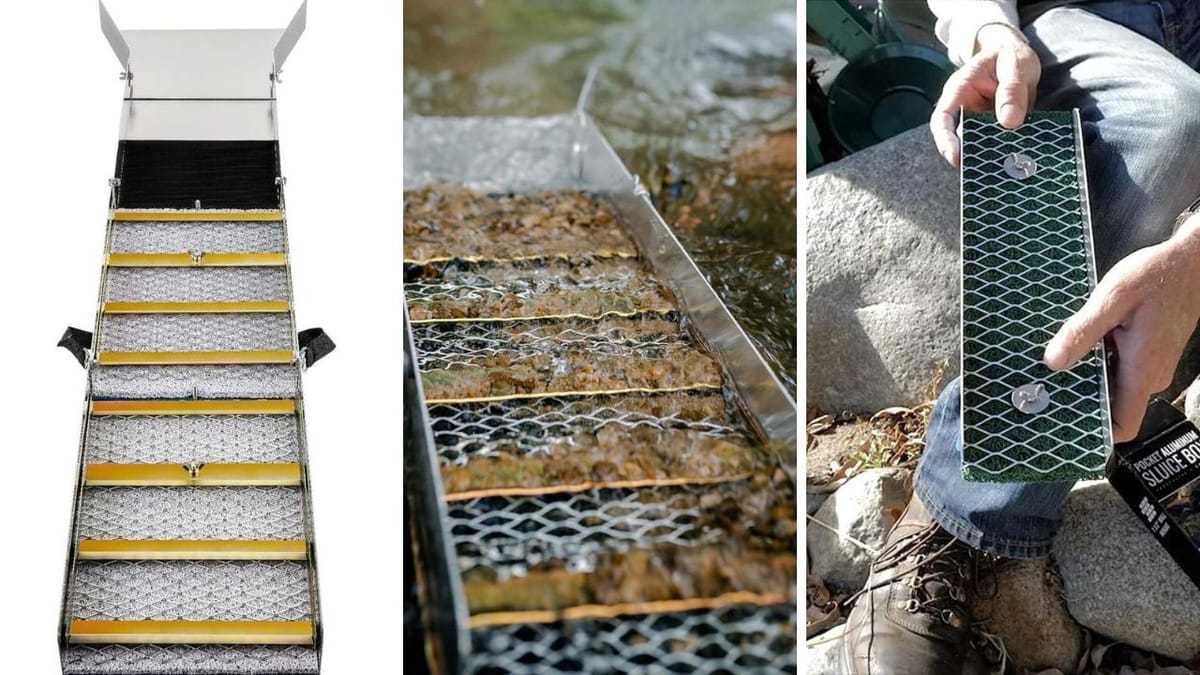












Member discussion